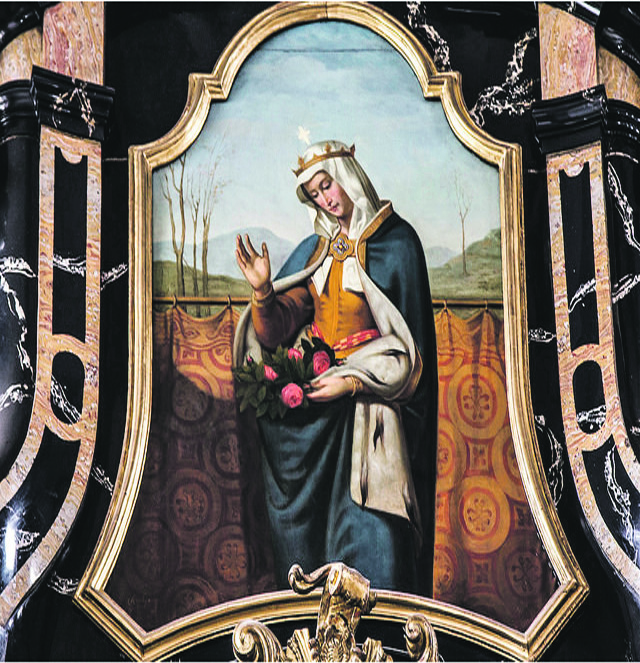Elizabeth (or Isabel, the Spanish form of the name) was the daughter of King Peter III of Aragon and the pious Constancia. Born in Saragossa, Spain in 1271, she bears the title of peacemaker, as the existing differences between her father and grandfather seemed to have vanished while celebrating the joy of her birth.
As a young child, Elizabeth exhibited virtues like piety, charity, mercy, patience and kindness. Her father often remarked that she would grow up to surpass all the women in the royal court in accomplishments. Named after her great aunt, St Elizabeth of Hungary, Elizabeth had many role models in the family whose religious fervour encouraged her all the more to live a life of piety.
Prayer in the form of daily Mass and fasting with severe penance were a part of Elizabeth's young life. There was nothing harsh about her penance as she was very loving and charitable in her work towards the poor and needy. Her accomplishments were known through all the royal courts of Europe and many a prince's son asked for her hand in marriage.
At the age of 12 she was married off to King Dennis of Portugal who at the time was 20. They were blessed with two children, a daughter, Constantia and a son, Afonso. She continued serving the sick and poor even when married and worked especially with lepers who were despised by many. She was known to bring lepers home, clean their wounds and bandage them while also giving them a change of clothes and a hot meal.
Elizabeth is commonly represented in images with an apron full of roses. King Dennis was informed of his wife's charitable works and warned of the effect this would have on his fortune. One day, he decided to accompany Elizabeth on her daily strolls to help the poor and needy when he noticed that she had hidden something beneath her apron. Elizabeth indeed had bread hidden to feed the hungry. On being asked, she replied that they were roses she was carrying to decorate the altars in the monastery. It was the month of January, when roses never bloomed and to the king's surprise, Elizabeth opened her apron which was miraculously filled with fresh roses. Dennis apologised to Elizabeth although he could not comprehend how this was possible.
Dennis was fond of his wife, he did not quite understand her pious ways and often faltered into sin, fathering seven children with other women. Elizabeth agreed to look after these children and educate them. Growing up, Elizabeth's son Afonso resented the favour Dennis showed towards one of his illegitimate children and wished to make war on his father. True to her title of peacemaker, Elizabeth rode in person between the opposing armies and stopped father and son from going to war.
Elizabeth was upset about her husband's sinful ways, less because he was unfaithful but more so as he was offending God. She prayed with great devotion and did many a penance on her husband's behalf to win him back. Eventually, her prayer and patience bore fruit in converting her husband who asked forgiveness of her. King Dennis died in 1325 and his son Afonso succeeded him. Soon after her husband's death, Elizabeth retired to a convent of Poor Clares, devoting her life to the poor and the sick.
When Afonso's daughter Maria was given in marriage to the King of Castile she was mistreated and neglected by her husband. Afonso was enraged and waged on war with the King of Castile. Elizabeth, who was old and frail by this time, still intervened to stop the warring armies by making peace arrangements.
The exertion took a toll on her health. She developed fever and died peacefully in 1336 urging her son to love holiness and peace in her last moments. She was buried in the convent of Santa Clara in Coimbra.
After her death, many miracles were attributed to her intercession which contributed to her canonization by Pope Urban VIII in 1625. Her feast day is celebrated on 4th July.




